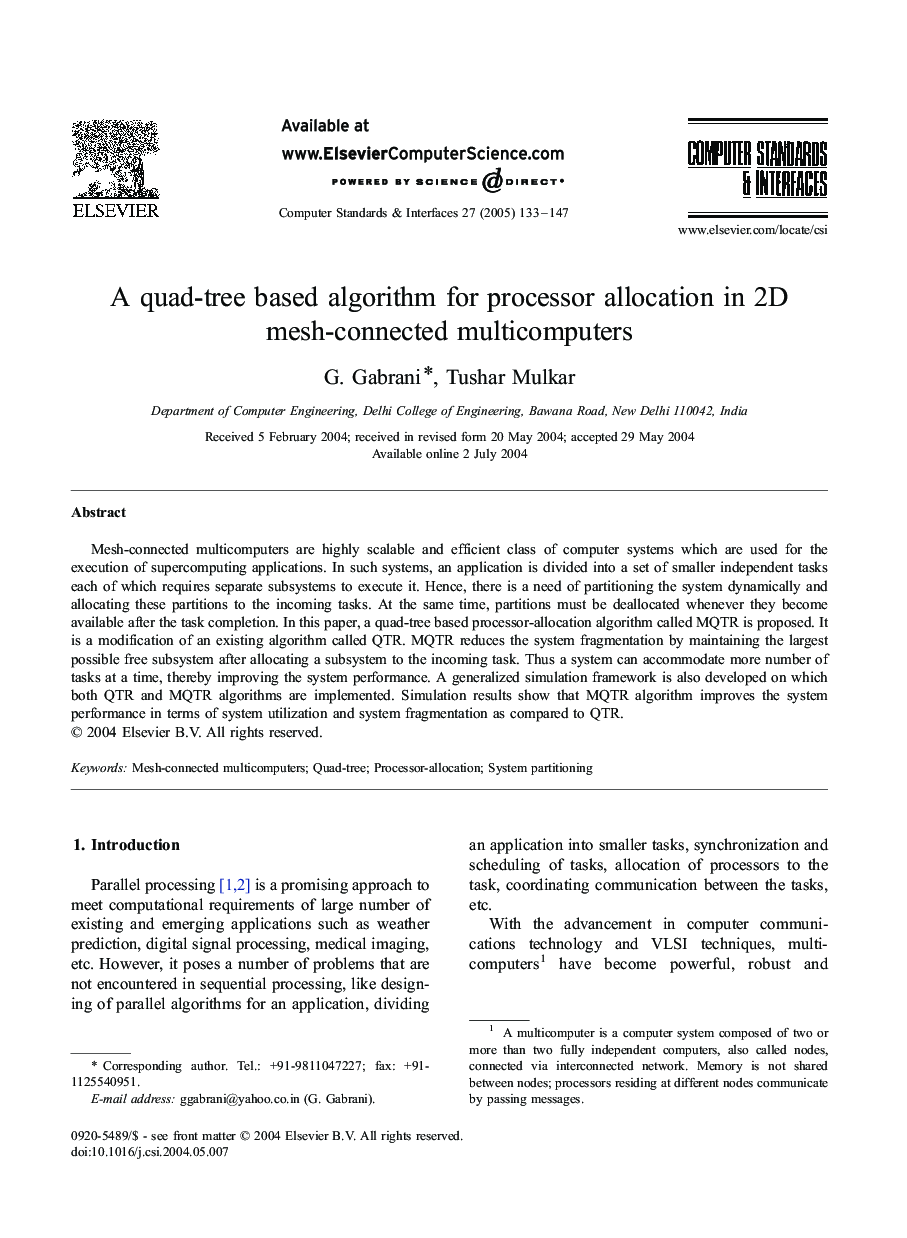| Article ID | Journal | Published Year | Pages | File Type |
|---|---|---|---|---|
| 10340619 | Computer Standards & Interfaces | 2005 | 15 Pages |
Abstract
Mesh-connected multicomputers are highly scalable and efficient class of computer systems which are used for the execution of supercomputing applications. In such systems, an application is divided into a set of smaller independent tasks each of which requires separate subsystems to execute it. Hence, there is a need of partitioning the system dynamically and allocating these partitions to the incoming tasks. At the same time, partitions must be deallocated whenever they become available after the task completion. In this paper, a quad-tree based processor-allocation algorithm called MQTR is proposed. It is a modification of an existing algorithm called QTR. MQTR reduces the system fragmentation by maintaining the largest possible free subsystem after allocating a subsystem to the incoming task. Thus a system can accommodate more number of tasks at a time, thereby improving the system performance. A generalized simulation framework is also developed on which both QTR and MQTR algorithms are implemented. Simulation results show that MQTR algorithm improves the system performance in terms of system utilization and system fragmentation as compared to QTR.
Keywords
Related Topics
Physical Sciences and Engineering
Computer Science
Computer Networks and Communications
Authors
G. Gabrani, Tushar Mulkar,
